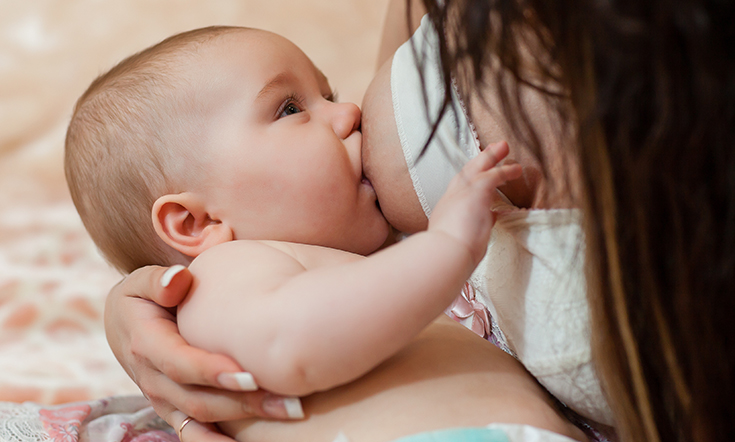

Mastitis is the inflammation (and sometimes infection) caused by a blocked milk duct. When the breast isn’t emptied completely the ducts can get blocked. Breastfeeding mothers are most at risk of mastitis in the second or third week after birth. True mastitis, sometimes known as ‘milk fever’, manifests with symptoms that feel like you are getting the flu, including the shivers and aches and pains.
A blocked duct does not mean you have mastitis. Mastitis is when the blocked duct is very painful, hot and possibly swollen. The skin of the breast is often streaked pink and you will feel very unwell, sometimes quite suddenly.
Treatment
Feed Your Baby
It is important that you keep feeding if you suspect you have mastitis. It is probably the last thing you will feel like doing but draining the breast of milk is the only way to unblock the duct. Feed your baby more often than usual and always start on the sore side, but take care to make sure the other side doesn’t get blocked as well.
Massage
Gently massage your breast in a downward motion towards the nipple, while your baby feeds. This may help move the blockage. Mastitis can make your milk taste salty, this wont hurt your baby but they may refuse the breast because of it. If your baby won’t feed, try to hand express under a warm shower.
Apply warmth and cold
Using cold packs on your breasts will sooth the pain and help reduce inflammation. You can also use warmth (heat pack, warm shower, or warm face washer), but do so just before a feed (around ten minutes) as this can help trigger your let down and in turn help clear the blockage.
Rest
It is essential to get plenty of rest when you have mastitis. If you can, stay in bed, or lie on the couch. Reach out to friends or family for help while you recover.
See A Doctor
If the if you feel very unwell with pain and fever it is important that you see a doctor. It is likely you will need antibiotics to treat any infection that may be present. If mastitis is not treated appropriately you may be at risk of a breast abscess. Although this is rare, it is still a risk if treatment is not sought.
For more on common breastfeeding problems see here.























